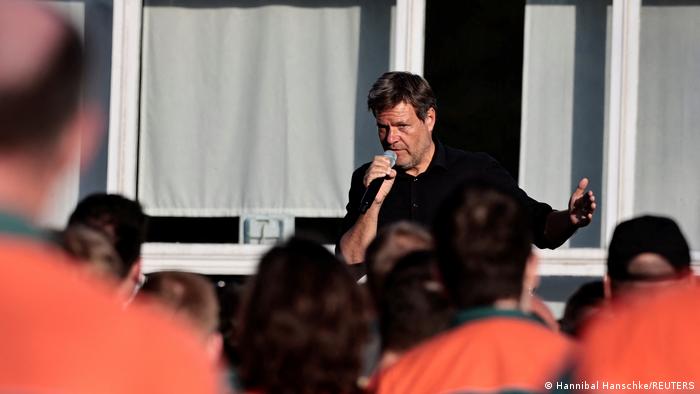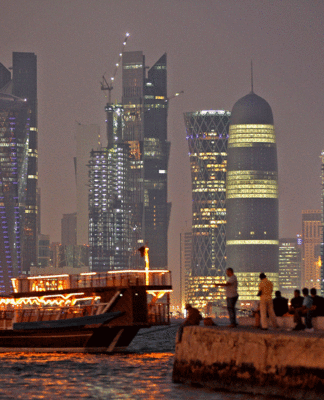G7: Germany urges leading role in coal phaseout
The climate talks in Berlin are focusing not only on the war in Ukraine and Russian energy, but also how the G7 nations can take a lead on the phasing out of coal.
 German Economy and Climate Protection Minister Robert Habeck talks with workers at a German oil refinery earlier this month
German Economy and Climate Protection Minister Robert Habeck talks with workers at a German oil refinery earlier this month
Germany’s Economy Minister Robert Habeck told officials at the G7 talks in Berlin that there was still an opportunity to phase out coal and fossil fuels and accelerate the transition to green energy.
G7 energy, climate and environment ministers are gathered in Berlin for talks on how to keep climate goals on track with Russia’s war on Ukraine raging, and energy and food prices spiking worldwide as a result, potentially leading to upheaval and instability that could derail the effort to reach climate targets.
Some countries have even discussed returning to coal to avoid Russian fossil fuels.
What will come of the G7 climate talks?
A draft communique sees the G7 ministers commit to a phaseout of coal by 2030, Reuters reports. Some at the talks anticipated opposition from Japan and the US, however.
Another matter for discussion is an effort toward a net zero electricity sector by 2035 and a reporting commitment starting next year for how each G7 country plans to phase out inefficient fossil fuel industry subsidies after 2025.
What have leading G7 ministers said?
Habeck warned that the “great structural crises of our times” — whether climate change or the war in Ukraine — should not be played off each other in competition for time, attention and resources.
Instead, Russia’s invasion of Ukraine presented an opportunity marking the “first step to quickly exit fossil fuel energy altogether,” according to the German minister.
US climate envoy John Kerry sounded a similar alarm as Habeck, expressing concern that the conflict over Ukraine could interfere with climate goals.
“It is absolutely critical, that we heed the science that dictates that we must accelerate our efforts for conversion to independence, to renewable energy,” Kerry said.
What does the EU plan to do to meet G7 goals?
At the G7 meeting, Habeck urged all EU countries to reduce their dependence on oil while singling out Hungary in particular. The European Commission has proposed an oil embargo on Russia as the harshest punishment yet for Russia’s war on Ukraine.
EU Energy Commissioner Kadri Simson said at the talks, “We have to send a clear message that we agree here in Berlin that our green transition remains our priority.”
Habeck added the EU can still strike a deal to place an embargo on Russian oil in the coming days or look to “other instruments” should the 27-nation bloc fail to forge a deal.
However, talks so far have failed to force the hand of Moscow’s closest EU ally, Hungary and its leader, Viktor Orban. The EU has proposed giving Hungary, the Czech Republic and Slovakia, which are most dependent on Russian oil, time to phase in an EU-wide embargo.
Brussels has offered €2 billion ($2.1 billion) to help with the transition. Hungary said it needed €750 million immediately and that infrastructure changes shifting from Russian sources would cost billions.
Reuters reports Orban wrote EU leaders to attempt to dissuade them from attempting to impose a Russian oil embargo at a meeting next week.
The Berlin G7 climate talks are scheduled to end Friday.
ar/rt (dpa, Reuters)






























